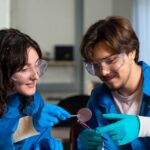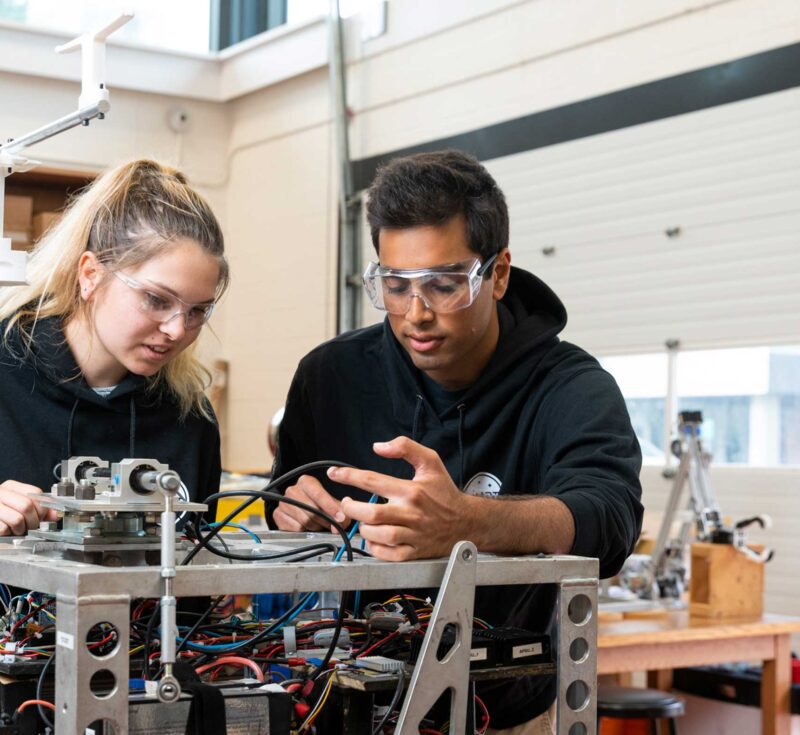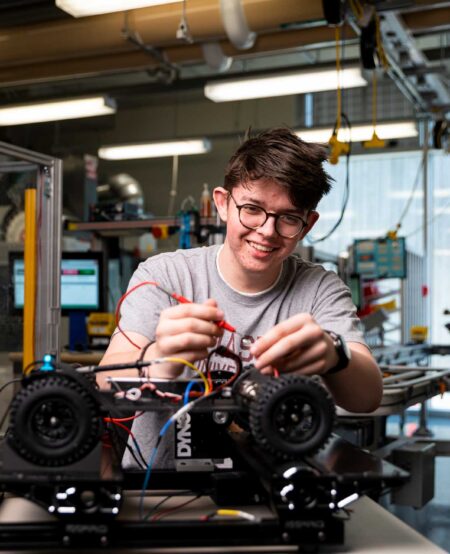- Length
- 5 years
- Degree
- Bachelor of Engineering & Biomedical Engineering (Co-op Available)
- Program
- Integrated Biomedical Engineering & Health Sciences (iBioMed)
- Options
Program highlights
Software engineers are ultimately responsible for the usability, safety, and reliability of their products, which is particularly relevant for medical devices. Computing is used to solve problems, manage information, create smart technologies, explore the world, and connect to other people.
Software engineers specialize in designing, building, testing, and maintaining the software in computer systems. These systems control electrical and mechanical devices, computerized communication systems, information systems, medical devices and health care infrastructure.
Fundamental design principles
The Software and Biomedical Engineering program prepares students for a career in a rapidly changing field by emphasizing fundamental design principles, material that will still be useful and valid three decades from today.
Software testing and simulation
Students learn to apply basic mathematics and science (including relevant Computer Science and Medical Science), as well as undertake disciplined testing and simulation to ensure that any system they design will perform its tasks adequately when delivered to a customer for use.
Admission requirements


Careersand research
Career paths
Most graduates start out being developers, but a wide variety of software-intensive industries, from large companies to start-ups. McMaster, through The Forge, provides a lot of help to entrepreneurial students with bright new ideas.
- Biomedical field
- Computer system development
- Power, chemical, or automotive industry
Research areas
McMaster Engineering has a world renowned research group in software engineering pursuing research in a wide range of areas including:
- Software certification
- Wireless systems
- Optimization
- Software development
- Biomedical engineering
- Power systems
Need moreinformation?
How to apply
Understand every step, from applying, to accepting your offer and joining us on campus!
Department of Computing and Software
We’re developing the engines of economic growth in a digital society.


